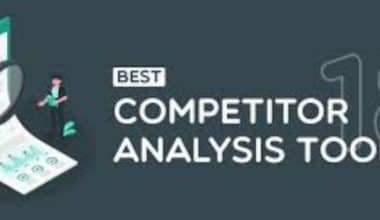Running a business isn’t easy. Technology should be a tool that empowers you, not a constant source of headaches. If your current setup feels more like an anchor than an engine, it might be time to consider a change. Cloud computing could be the key to unlocking new levels of efficiency, agility, and growth.
Cloud computing is a smarter way to manage your tech needs, freeing up your team to focus on innovation instead of troubleshooting.
But not all cloud providers are created equal. Choosing the right one is critical to ensuring you reap the full benefits of this transformative technology. this article will be your guide to navigate the landscape and find the perfect fit for your business.
Understanding Cloud Service Models

There are three main models of business cloud solutions, each catering to different needs and preferences:
Infrastructure as a Service (IaaS)
This is like renting a plot of land and building your own house on it. You get the basic building blocks (virtual servers, storage, and networking), and you’re in charge of constructing the rest. This gives you maximum control and customization, but it also means you’re responsible for maintenance and upkeep. For example, a startup might use IaaS to host their website and applications, giving them the flexibility to scale resources as their user base grows.
Platform as a Service (PaaS)
PaaS provides you with a platform to develop, run, and manage your applications without worrying about the underlying infrastructure. This is a great option if you want to speed up development and reduce your IT workload. For instance, a software company might use PaaS to quickly build and deploy new applications without having to invest in expensive hardware and infrastructure.

Software as a Service (SaaS)
SaaS is the easiest and most convenient way to use cloud services, and it’s perfect for businesses that want to avoid the hassle of managing software. Some businesses use a SaaS customer relationship management (CRM) tool to manage their leads and sales pipeline.
Choosing the right cloud infrastructure depends on your specific needs and priorities. Consider factors like control, flexibility, cost, and ease of use when making your decision. You can also mix and match models to create a hybrid solution that best suits your business.
Examples of Providers
The cloud computing arena is a bustling marketplace with a variety of players, each offering their own unique flavor of services. Here are some providers you might encounter on your cloud journey:
The heavyweights
These are the big names, the household brands of the cloud world. They boast a vast array of services, from basic infrastructure to cutting-edge AI and machine learning tools. They’ve got the experience, the reputation, and the global reach to handle even the most demanding workloads.
The agile specialists
These providers might not have the same breadth of services as the heavyweights, but they excel in specific areas. Some focus on delivering lightning-fast performance, others on rock-solid security, and still others on catering to niche industries like healthcare or finance. If you have particular requirements, these specialists might be your best bet.
The up-and-comers
These are the newer players in the market, eager to make their mark. They often offer innovative solutions and competitive pricing to lure customers away from the established giants. While they might not have the same track record, they can be a great option for businesses looking for a fresh approach.
No matter what your needs are, there’s a cloud provider out there that’s right for you. It’s just a matter of doing a smart comparison and finding the one that best fits your business like a glove.
Key Factors to Consider
Here are key factors you need to consider when evaluating cloud providers to ensure you’re getting the best bang for your buck:
Performance & Reliability
Look for a provider that guarantees at least 99.9% uptime, minimizing any disruptions to your business operations. Low latency is also key, ensuring fast response times for your applications and a seamless user experience, especially if you have a global audience. This is often influenced by the location of the provider’s data centers – the physical locations where your data is stored and processed. And don’t forget about disaster recovery – a solid plan ensures your data and applications can be quickly restored in case of unexpected outages, keeping your business running smoothly even when the unexpected happens.
Security & compliance
When evaluating cloud providers, prioritize cloud security features that demands encryption at every turn, both when your data is stored (at rest) and when it’s being transmitted (in transit). Look for providers that offer granular access controls, allowing you to decide who gets to see what. And if your industry has specific security regulations, make sure your chosen provider has the certifications to prove they can meet those standards.
Cost & pricing models
Prioritize providers with transparent pricing that clearly outlines what you’re paying for, avoiding any hidden fees or surprise charges. Compared to a vendor lock-in, a pay-as-you-go model can be a flexible option for businesses with fluctuating needs, allowing you to only pay for the resources you actually use. If you have predictable workloads, consider providers offering reserved instances or discounts for long-term commitments, similar to buying a season pass to your favorite theme park.
Support & customer service
Look for a provider that offers 24/7 support and monitoring across multiple channels like phone, email, and chat. Ensure their support staff are knowledgeable and certified, capable of understanding your unique needs and providing tailored solutions. Don’t hesitate to ask for references or check online reviews to gauge the provider’s reputation for responsiveness and helpfulness. A reliable support team can mean the difference between a minor hiccup and a major roadblock for your business.
Scalability
Look for a provider that offers scalability options like vertical scaling (adding more power to existing servers) and horizontal scaling (adding more servers). The real magic happens with auto-scaling, which automatically adjusts resources based on demand.
Having a scalable cloud infrastructure is essential for businesses that experience fluctuations in traffic or need to accommodate rapid growth. It ensures that your applications and services can handle any workload without sacrificing performance or user experience. Plus, a scalable cloud can save you money by ensuring you only pay for the resources you actually need. When evaluating providers, prioritize those that offer seamless data transfer and integration capabilities, making it easier to move your data and connect your various systems within the cloud environment.
By carefully considering these factors, you can find a cloud provider with service offerings that can take your business to the next level. It’s about finding the best cloud provider that you can trust to support your growth and success in the digital age.
Final Thoughts
Choosing the right cloud provider is more than just a technical decision; it’s a strategic move that can shape your business’s future. By carefully evaluating the factors this article discussed, you’ can select a partner that can empower your organization to reach new heights. So, take the time to research, compare, and choose wisely – your business’s future success depends on it.






